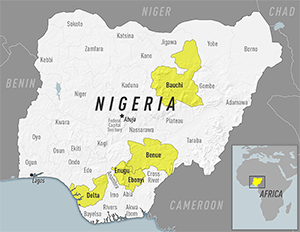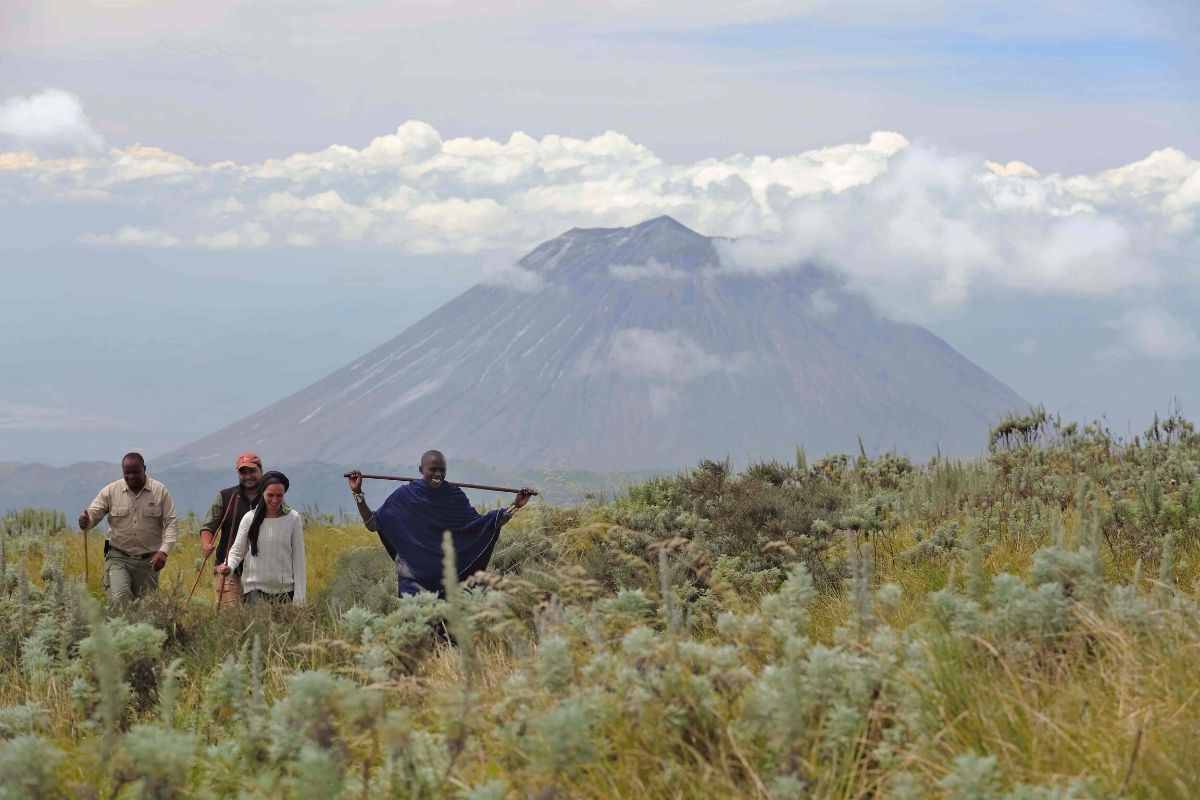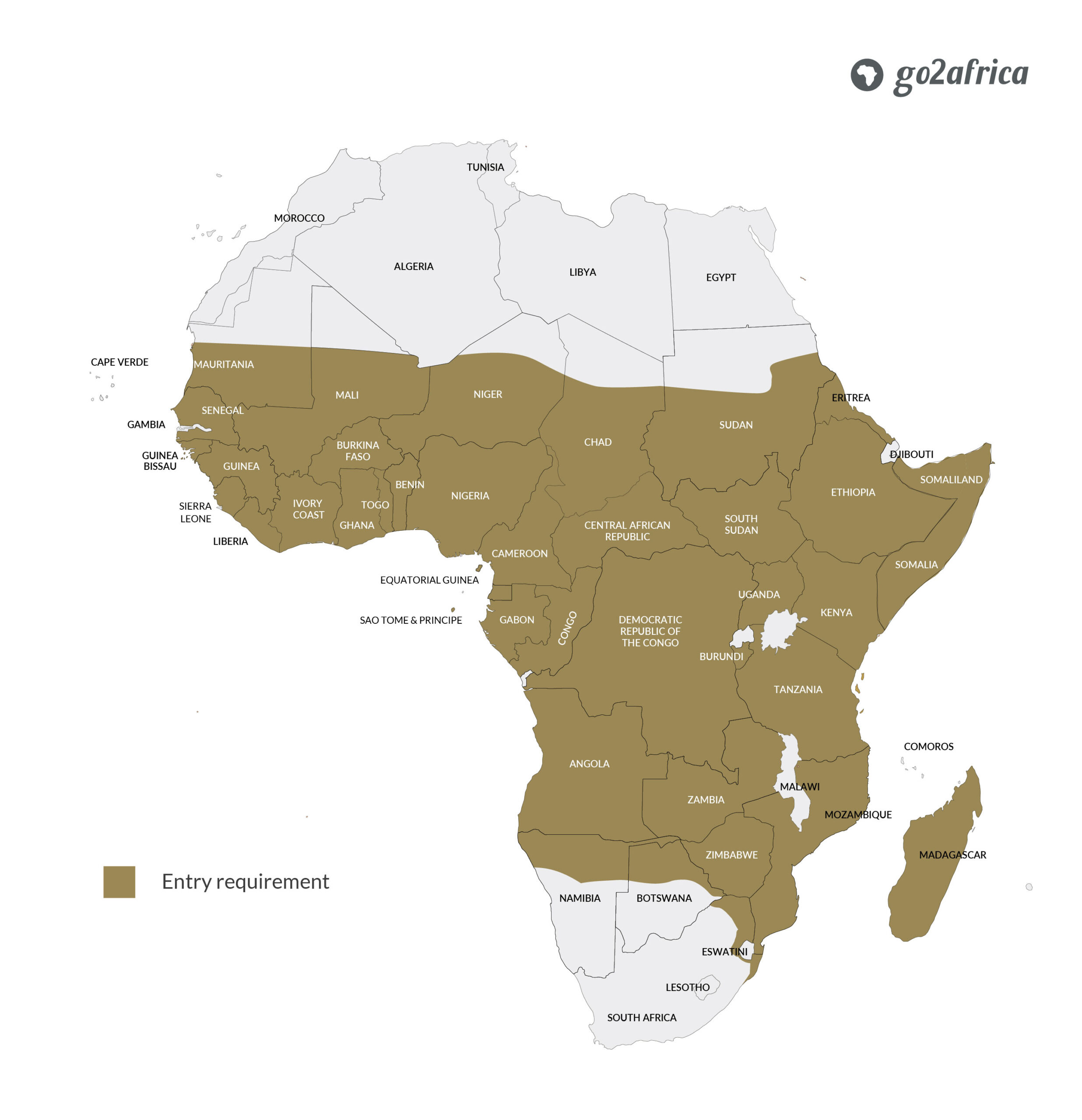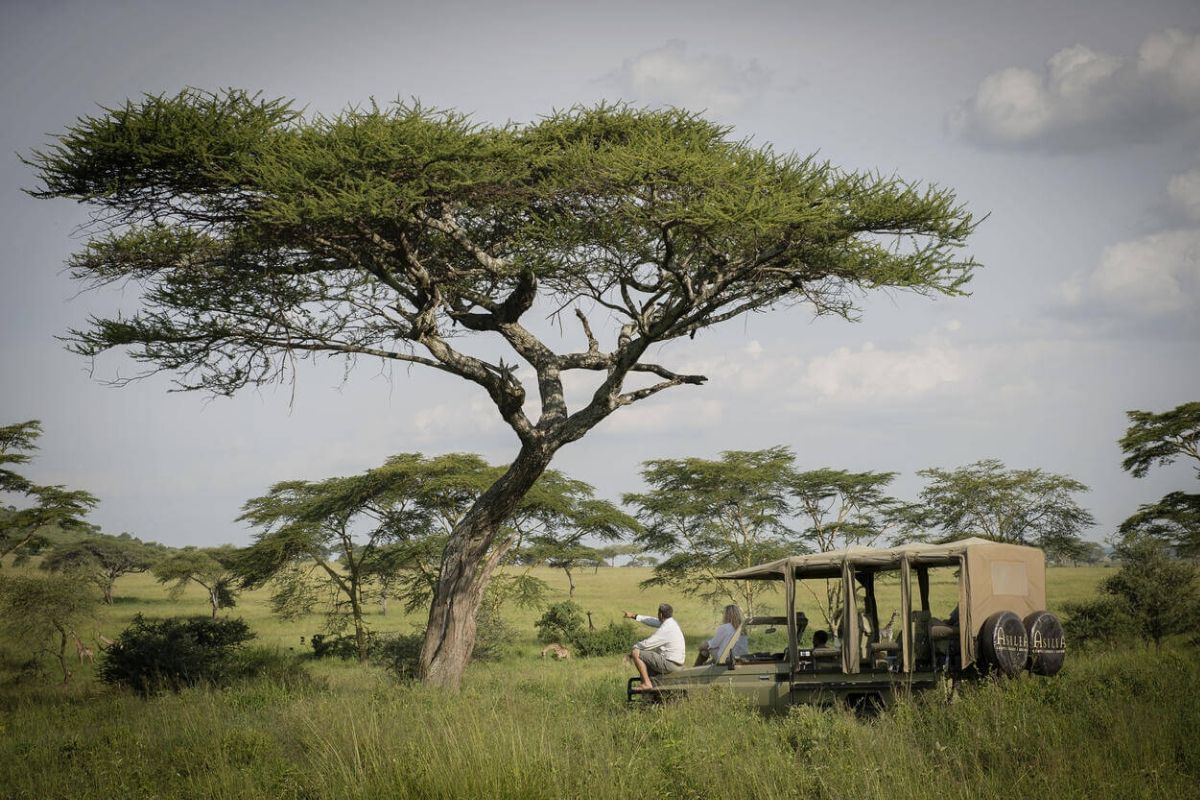Do you need yellow fever vaccination to travel to africa
Do you need yellow fever vaccination to travel to africa

Yellow fever is an acute viral hemorrhagic fever.
Symptoms of yellow fever (fever, chills, headache, backache, and muscle aches) develop 3-6 days after infection. About 15% of people infected with yellow fever virus will develop severe illness that can lead to liver disease, bleeding, shock, organ failure, yellowing skin (jaundice), and sometimes death.
Diagnosis is based on symptoms, laboratory testing, and travel history. Yellow fever virus spreads through the bites of infected mosquitoes.
What is the current situation?
The Nigeria Centre for Disease Control (NCDC) is reporting yellow fever outbreaks in multiple states (Bauchi, Benue, Delta, Ebonyi, and Enugu) as confirmed by testing at the Nigerian National Reference Laboratory. Response activities are underway and mass vaccination campaigns are planned in the affected areas.
What can travelers do to prevent yellow fever?
There are no medications to treat or cure yellow fever. Yellow fever vaccine is the best protection against this disease. Travelers should also use mosquito repellent to prevent mosquito bites.
Although the government of Nigeria only requires that travelers arriving from another country where yellow fever occurs to show proof of vaccination, CDC recommends that all travelers 9 months or older going to Nigeria should receive vaccination against yellow fever at least 10 days before travel. Yellow fever is always a risk when travelling in Nigeria, and even more so while yellow fever outbreaks are occurring. A signed and stamped International Certificate of Vaccination or Prophylaxis (ICVP or “Yellow Card”) provides proof of vaccination.
- Contact yellow fever vaccine providers well in advance of travel. Search for a yellow fever vaccination clinic near you.
- Travelers going to places where yellow fever outbreaks are occurring are at increased risk of infection, even if vaccinated in the past. For this reason, if you received yellow fever vaccine 10 or more years ago, talk with a health care professional about getting a booster vaccination before traveling anywhere in Nigeria where there is a declared yellow fever outbreak.
- Talk with a health care professional if you have questions about yellow fever vaccine. Yellow fever vaccine is not recommended for some people.
- If you cannot be vaccinated against yellow fever (for whatever reason), do not travel to places where yellow fever outbreaks are occurring.
Because mosquitoes spread yellow fever (and other diseases), all travelers to Nigeria should take steps to prevent mosquito bites.
- Use an EPA-registered insect repellent.
- Wear long-sleeved shirts and long pants when outdoors.
- Sleep in an air-conditioned room with the windows closed, a room with window screens, or under an insecticide-treated bed net.
If you get sick during or after travel
Talk to a doctor or nurse if you get sick, especially if you have a fever. Tell them you have been in a country with yellow fever.
What Vaccinations Do I Need for Africa in 2022?
When your Africa safari is booked and confirmed, you’ll likely experience a surge of emotions, ranging from the excitement of anticipating a new adventure to the thrill of fulfilling a dream and, perhaps, a tiny tingle of anxiety about possible health concerns (often fuelled by friends or family who have never travelled to Africa).
The good news is, with sound medical advice from your doctor or travel clinic specialist plus up-to-date vaccinations and good, old-fashioned common sense, you are very unlikely to have any serious health concerns. Ironically, the riskiest part of any journey in terms of your health is likely to be the long-haul flight.

Before you leave, visit your doctor
We’re Africa travel specialists, not medical experts. We recommend that you visit your doctor well in advance of your safari adventure to discuss any health concerns you might have.
The COVID-19 Vaccine & Travel to Africa
Although the coronavirus-related entry requirements vary from country to country, some commercial airlines that fly to and within Africa require that passengers produce a negative COVID-19 PCR test that has been conducted within 72 hours of their departure. Please ensure you are acquainted with the COVID-19 protocols of the airline you are travelling with.
With travel restrictions and COVID-19 protocols are easing by the minute, more and more African destinations no longer require fully vaccinated visitors to undergo PCR testing prior to departure or on arrival. You can browse our entry requirements tracker to identify the exact requirements you will need to fulfil when travelling to Africa.
And if you’d like to know what it’s been like to travel to Africa during the pandemic, you can read what our our clients had to say about their recent safari experiences.
Find out more about how to travel safely in Africa, the best destinations to visit and the top places to get away from the crowds:
Africa Travel Tips: How to Travel Safely
5 Best Places to Go on Safari in 2022
All to Yourself: The Best Exclusive-use Luxury Properties
Routine vaccinations
Some diseases that have been made rare in your home country due to routine vaccinations may be far more common in the developing world. As such, it’s recommended that you visit your health care provider four to six weeks before you travel to ensure that you are up to date with the following routine vaccinations:
- Flu
- MMR – measles, mumps and rubella (German measles)
- Polio
- Hepatitis A & B
- DPT – diphtheria, pertussis (whooping cough) and tetanus
Important: It’s essential that you be in optimum health if you’re trekking to see gorillas, as they are hyper vulnerable to human diseases. A common human cold can kill a gorilla, so you will not be allowed to join the trek if you have even the slightest symptoms of illness. Trek slots are non-refundable and non-transferrable, so look after yourself and nip even the smallest health issue in the bud.
Yellow fever vaccination
Yellow fever is spread by a species of mosquito that is common in the ‘yellow fever belt’, which stretches across parts of Africa and South America. It’s easily prevented with a simple and highly effective vaccination that’s routinely available from travel clinics.

You must have the vaccination at least 10 days before you plan on entering a yellow fever area. This is because it takes a few days before you are effectively protected and you may experience flu-like symptoms, which are unpleasant on a long-haul flight. Once you’ve had the shot, the travel clinic will issue you with an International Certificate of Vaccination or Prophylaxis (IVCP) that proves you’ve been inoculated.
Important: Only a travel clinic can issue a yellow fever certificate.
The table below provides a short summary of the yellow fever vaccination requirements in the countries you might travel to with us. Although we try our best to keep this information up to date, please consult with your doctor or health care practitioner before you travel, as they will be able to give you the best advice about yellow fever vaccinations.
| Vaccination is an entry requirement | Vaccination required if you’ve been to a country in the yellow fever belt |
| Republic of the Congo | Botswana |
| Uganda | Madagascar |
| Rwanda | |
| Tanzania | |
| Kenya | |
| Namibia | |
| Seychelles | |
| South Africa | |
| Mozambique | |
| Zimbabwe | |
| Zambia |
Malaria prevention
As it’s spread by disease-carrying females of the species, the risk of contracting malaria is highest when and where mosquitoes are prolific; particularly during the hot and humid summer months in tropical regions.

Malaria is one of the most common diseases in Africa, but is easily preventable and treatable with antimalarial medication. Visit your doctor to get advice about whether you should take antimalarial prophylactics as soon as you know when and where you’ll be travelling.
Adhere to the prescribed schedule of your antimalarial prophylactics to ensure that they work as planned. If you experience any uncomfortable or unexpected side effects while you’re on safari, let your guide or camp manager know.
Important: Let your doctor know if you’re planning on scuba diving after you’ve visited a malaria area, as this could affect the type of antimalarial they can prescribe.
You can take further preventative measures, such as applying insect repellent to any exposed skin every time you shower or change clothes, covering your skin from neck to toe with light-coloured clothing at night, keeping your tent or room doors closed and your mosquito net over your bed, and using a quality citronella soap.
You should seek immediate medical attention if you exhibit a fever and flu-like symptoms, including chills, headache, muscle aches and fatigue, within three months of your departure from the malaria area. Although it can be deadly, many people survive malaria if they seek medical attention as soon as they have symptoms.
If you decide you don’t want to travel in a malaria area, there are plenty of great malaria-free safaris to choose from.
General health tips when travelling to Africa
- Visit your GP well ahead of your departure to discuss any health issues you may have.
- Ensure that you have comprehensive travel health insurance. If your safari adventure will take you to remote parts of Africa, it’s essential that you have adequate cover to ensure you can be evacuated to the nearest major hospital and repatriated to your home country.
- Try to stay as healthy and fit as you can before you depart – you don’t want to start your vacation fighting off a cold or flu. It might be worth considering a flu shot in good time before your departure.
- Take multivitamins or immune boosters and pack some in your hand luggage to take along on the plane to avoid the dreaded ‘flight flu’.
- Stock up on enough of all your prescription drugs before you leave. Be sure to bring copies of your doctors’ scripts and keep scheduled medication in its original packaging. Ask your doctor to supply the generic or alternative names for your medications in case you need seek medical attention while in Africa.
- Consider bringing spare contact lenses, asthma pumps, diabetes monitors and any over-the-counter medication you use regularly (such as treatment for migraines, upset stomach or allergies) – it’s always comforting to have the exact medicine you’re used to taking, if you need it.
- Be sure to inform your Africa Safari Expertas early as possible if you require special medical attention (such as a gluten-free menu for someone with coeliac disease) or special facilities (such as a wheelchair-friendly environment).
- Ensure that all your and your children’s routine vaccinations, such as MMR (measles-mumps-rubella), polio, hepatitis and DPT (diphtheria-pertussis-tetanus), are up to date.
- Always heed your doctor’s advice, even if it’s disappointing – like not being able to scuba dive off Africa’s Indian Ocean islands when you are pregnant (you can still snorkel in the magnificently clear, warm water, so all is not lost).
- If you’re not feeling well at any stage during your safari adventure, let your guide or camp manager know.

Visiting Africa is a thrilling adventure – one you want to remember for all the right reasons. Even if you’re in perfect health, it’s important to chat to your health care practitioner before you travel to ensure you get health advice that’s specific to you and your medical history. Being a well-informed and well-prepared traveller will mean that you’ll enjoy complete peace of mind and the freedom to fully immerse yourself in your safari vacation.
Do you need yellow fever vaccination to travel to africa

Yellow fever is an acute viral hemorrhagic fever.
Symptoms of yellow fever (fever, chills, headache, backache, and muscle aches) develop 3-6 days after infection. About 15% of people infected with yellow fever virus will develop severe illness that can lead to liver disease, bleeding, shock, organ failure, yellowing skin (jaundice), and sometimes death.
Diagnosis is based on symptoms, laboratory testing, and travel history. Yellow fever virus spreads through the bites of infected mosquitoes.
What is the current situation?
The Nigeria Centre for Disease Control (NCDC) is reporting yellow fever outbreaks in multiple states (Bauchi, Benue, Delta, Ebonyi, and Enugu) as confirmed by testing at the Nigerian National Reference Laboratory. Response activities are underway and mass vaccination campaigns are planned in the affected areas.
What can travelers do to prevent yellow fever?
There are no medications to treat or cure yellow fever. Yellow fever vaccine is the best protection against this disease. Travelers should also use mosquito repellent to prevent mosquito bites.
Although the government of Nigeria only requires that travelers arriving from another country where yellow fever occurs to show proof of vaccination, CDC recommends that all travelers 9 months or older going to Nigeria should receive vaccination against yellow fever at least 10 days before travel. Yellow fever is always a risk when travelling in Nigeria, and even more so while yellow fever outbreaks are occurring. A signed and stamped International Certificate of Vaccination or Prophylaxis (ICVP or “Yellow Card”) provides proof of vaccination.
- Contact yellow fever vaccine providers well in advance of travel. Search for a yellow fever vaccination clinic near you.
- Travelers going to places where yellow fever outbreaks are occurring are at increased risk of infection, even if vaccinated in the past. For this reason, if you received yellow fever vaccine 10 or more years ago, talk with a health care professional about getting a booster vaccination before traveling anywhere in Nigeria where there is a declared yellow fever outbreak.
- Talk with a health care professional if you have questions about yellow fever vaccine. Yellow fever vaccine is not recommended for some people.
- If you cannot be vaccinated against yellow fever (for whatever reason), do not travel to places where yellow fever outbreaks are occurring.
Because mosquitoes spread yellow fever (and other diseases), all travelers to Nigeria should take steps to prevent mosquito bites.
- Use an EPA-registered insect repellent.
- Wear long-sleeved shirts and long pants when outdoors.
- Sleep in an air-conditioned room with the windows closed, a room with window screens, or under an insecticide-treated bed net.
If you get sick during or after travel
Talk to a doctor or nurse if you get sick, especially if you have a fever. Tell them you have been in a country with yellow fever.
Source https://wwwnc.cdc.gov/travel/notices/alert/yellow-fever-nigeria
Source https://www.go2africa.com/african-travel-blog/vaccinations-need-africa
Source https://wwwnc.cdc.gov/travel/notices/alert/yellow-fever-nigeria